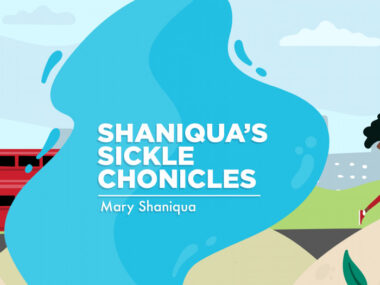SCD Clinical Trials Network Welcomes First Research Sites
Written by |

Several clinical research sites seeking to find new treatments for people with sickle cell disease (SCD) are joining a collaborative network created by the American Society of Hematology Research Collaborative (ASH RC).
The initiative, called ASH RC Sickle Cell Disease Clinical Trials Network, has already engaged about 24,000 patients with SCD, including children, in order to speed up the development of new therapies and promote clinical research innovation.
“The ASH RC Sickle Cell Disease Clinical Trials Network is uniquely situated to accelerate clinical research and the development of novel therapeutics to help those living with sickle cell disease,” Charles S. Abrams, MD, chair of the network’s oversight committee, said in a press release.
“This an unprecedented opportunity to make a profound difference in the lives of people with sickle cell disease. We are committed to partnering with patients, families, and the broader sickle cell disease community,” Abrams added.
SCD is an inherited blood disorder that is estimated to affect more than 100,000 people in the U.S. alone, and about 100 million people worldwide.
Although there are only a few FDA-approved treatments for SCD, several potential therapies are being developed and tested in clinical trials. As such, researchers believe this joint effort will increase the likelihood of making significant advances in SCD treatment development.
Now, the network will match a total of 10 research sites with several clinical trial sponsors by establishing a set of consortia, or associations. Each consortium comprises a lead clinical trial site, or hub, which supports various clinical research sites, or spokes. Examples of clinical research sites are hospitals, private clinics, and community health centers. The full list is available here.
To make sure the needs of patients and their caregivers are considered, the network offers support for SCD community advisory boards, which are groups of patient advocates and experts that discuss all issues related to medical treatments and procedures under development in SCD.
“We’re entering a new era for how clinical trials are designed and conducted, and the ASH Research Collaborative SCD Clinical Trials Network is committed to ensuring that the voice of the SCD community is heard at every stage of the process, while ensuring a coordinated, efficient approach,” said Martin S. Tallman, MD, president of the ASH and ASH RC. “We hope to accelerate our ability to bring new treatments to individuals who are living with this difficult disease,”
Through the use of a centralized data repository called Data Hub, researchers will share nationwide data about SCD to support their investigation.
In addition to the 10 existing consortia, other sites will be integrated in the network and announced in the future.






